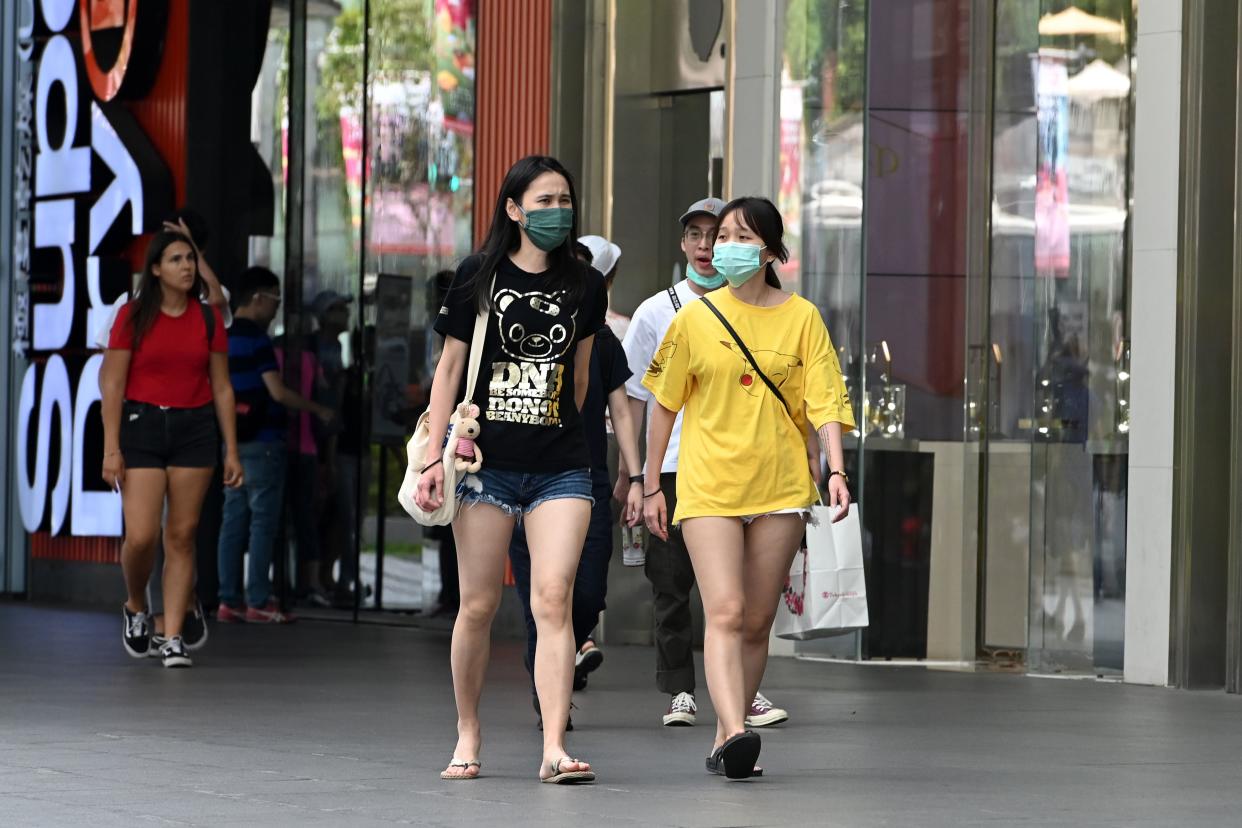Parliament: Pay more to low-wage workers fighting COVID-19, NMP Walter Theseira urges

SINGAPORE — With efforts at containing the spread of the new coronavirus depending on those at the frontline, there should be better pay and respect for these workers who are typically lower-paid Singaporeans, Nominated MP and economist Walter Theseira urged on Thursday (27 February).
Speaking during the Budget 2020 debate, Associate Professor Theseira noted that the COVID-19 outbreak has highlighted the “growing and invidious divergence between market prices and social value” such that the frontline workers benefit less from the market economy than others.
Prof Theseira said, “Today we commend our cleaners and security guards, nurses and public health workers, for being in the front line of protecting us against COVID-19. We acknowledge the work of our public transport workers, our hawkers and shopkeepers, in keeping our supply lines and daily life running as normal.”
He asked, “Can we give them a tangible increase in their salaries to acknowledge their sacrifices?”
Management pay cuts ‘an important signal’
Prof Theseira also suggested that the salaries of those in management be restrained and restructured.
In recent days, Temasek Holdings and portfolio companies SATS, SMRT, and CapitaLand have announced that they will reduce the pay and bonus of senior management in light of the impact of the outbreak.
Lauding the moves, Prof Theseira said, “They are important not just for the morale of frontline staff, who may yet face cost-cutting, but also sends a signal that the risks and costs of COVID-19 should be socially distributed.”
The NMP added, “Let me suggest that this year, we orient all efforts towards protecting and even increasing the wages of lower-paid Singaporeans, and paying for it by restraining and restructuring the wages of those higher up – which would include, I would suggest, Honourable Members (of Parliament) as leaders in their own professions.”
Market price may not equal social value
In his speech, Prof Theseira pointed out that market prices cannot be assumed to be equivalent to social values. “Market prices may be efficient, but that says little about it being equitable or socially desirable.”
The economist noted how the front lines of the war against COVID-19 are increasingly manned by those “whose market prices are low but (their) social values immeasurable, especially during a public health crisis”.
Giving the example of a cleaner at his university who has to clean and disinfect places more frequently and thoroughly, he said, “She bears the risks of cleaning up dirt and spills and worse things and she has more work now but the same pay.”
He added, “Our Town Councils likewise largely depend on foreign workers and elderly local cleaners who do jobs that few Singaporeans would accept for the same pay.”
But the disconnect between market prices and social value, he said, is not just confined to those of the lowest incomes. Security officers who serve quarantine orders, as well as emergency medical responders, nurses and general practitioners (GPs) who see suspected COVID-19 cases all put themselves at risk of contracting the virus.
“Yet the rewards for GPs have never been very high compared to that for specialists and surgeons, to say nothing of the pay for nurses and first responders. There may be market reasons why elective aesthetic surgery gives a doctor a much better living than primary care, but surely there are few social reasons why this is so,” said Prof Theseira.
Economic inequality requires intervention
The virus outbreak will likely hurt “those who already live precarious economic lives” such as freelancers and those working in small and medium enterprises, noted the economist.
“The market forces argument explains inequality through the argument that pay is equal to productivity. This turns our emphasis to ensuring that we improve our productivity in order to raise wages, which in the long run is more sustainable,” said Prof Theseira.
“But there are any number of market distortions which would explain why the productivity to pay relationship, while it may hold on average and in the long run, does not always hold for the individual or even the sector,” he added.
The Progressive Wage Model, Prof Theseira noted, has been successful in significantly reversing the formerly stagnant wages of those in the cleaning, security and landscape sectors. “Does this mean that low-wage worker productivity has jumped by 30 per cent over the last decade?
Prof Theseira said, “I suspect it is more likely that wages were simply too low, possibly because of the easy access back then to low-wage foreign workers and our low-wage workers’ lack of bargaining power.”
He said that the solution to being a nurse is not for that nurse to become a doctor. Similarly, the solution for cleaners “is not to hope that our children do not have to take up that job, or to depend on an inexhaustible supply of low cost foreign labour.”
“Society needs both nurses and doctors, cleaners and lawyers. The solution is to pay and respect low-wage workers better,” said Prof Theseira.
The Budget debate will end on Friday. Thereafter, Parliament will sit as a Committee of Supply to scrutinise each ministry’s budget in detail. The COS debate is scheduled to run on weekdays from Friday till 9 March.
Other Singapore stories:
Man jailed for blackmailing 4 women with explicit videos and photos
Judge rejects probation for teen girl who threatened to 'dig out eyeballs'
Largest ever haul of illegal chewing tobacco seized in Singapore
SDP to argue against fake news law directives before apex court



